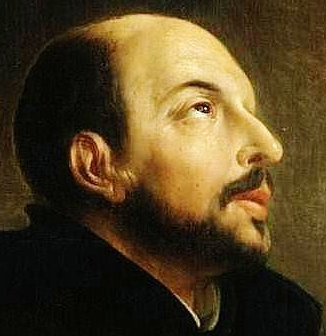 In recent years there has been renewed interested in the unique flavor of Christianity from the Celtic region. The Celts transformed their paganism into devote Christian practice and belief, but their connection to nature and to each other in community continued to flavor their understanding and practice of Christianity.
In recent years there has been renewed interested in the unique flavor of Christianity from the Celtic region. The Celts transformed their paganism into devote Christian practice and belief, but their connection to nature and to each other in community continued to flavor their understanding and practice of Christianity.
The ultimate Druid (their word for a priest) was then, Jesus, the Christ, Son of the Living God.

After the area was first introduced to Christianity, it became largely cut off from the world and also the massive changes in Christianity that happened once it became the official religion of the Roman Empire. Subsequently, Christianity evolved and soon involved in the power and authority of the (Rome-based) Roman Catholic Church who dominated and influenced life and culture during the middle ages in almost all of the Western civilized world (except the areas that were not subjected to the influential jihads of Islam).
Most Protestants don’t realize the deep and prevailing influence that the Roman version of Christianity has on how they understand, and practice their faith. Many widespread notions in the Western church, even today, began during the Middle Ages and stemmed from Rome.
Empires have a knack of distorting things for their own gain. Religious empires are no exception.
It’s insightful to see how Celts lived out their spirituality and it can add to our own understanding and growth to learn some things from them.
Here is the wikipedia article to expand your general understanding.
Here are some distinctions:
Distinctive Features of Celtic Christianity:
-love of nature and a passion for the wild and elemental as a reminder of God’s gift.
-love and respect for art and poetry.
-love and respect for the great stories and “higher learning”.
-sense of God and the saints as a continuing, personal, helpful presence.
-theologically orthodox, yet with heavy emphasis on the Trinity, and a love and respect for Mary, the Incarnation of Christ, and Liturgy.
-religious practice characterized by a love for tough penitential acts, vigils, self-exile, pilgrimages, and resorting to holy wells, mountains, caves, ancient monastic sites, and other sacred locations.
-no boundaries between the sacred and the secular
-unique Church structure:
-there were originally no towns, just nomadic settlements, hence the church was more monastic rather than diocesan, resulting in quite independent rules and liturgies.
-also, Ireland was very isolated and it was hard to impose outside central Roman authority.
-influenced much by (original/early Christianity) middle-eastern and coptic monasticism.
-they celebrated Easter and Lent according to the ancient calendar system.
-Irish tonsure shaved the front of the head (like the druids).
-abbots had more power than the bishops.
-monasteries often huge theocratic villages often associated with a clan with the same kinship ties, along with their slaves, freemen, with celibate monks, married clergy, professed lay people, men and women living side by side. (Sometimes monasteries “raided” other monasteries, esp. during the period of the Anglo-Norman invasion.)
-while some monasteries were in isolated places, many more were were at the crossroads of provincial territories.
-women had more equal footing in ancient Irish law, thus had more equal say in church government. (Did St. Bridget receive Holy Orders and act as an Abbot?)
-developed the idea of having a “soul friend” (anmchara) to help in spiritual direction.
-invented personal confession.
-monks traveled as “Peregrinari Pro Christ” (White Martyrdom).
-many pagan practices were “Baptized” such as St.Stephen’s Day, and the resorting to holy wells, and many monasteries were built on pagan sacred site (as evident in the names Derry, and Durrow).
Prayer Attributed to St Patrick, missionary to the Celts:
| I arise today, Through the strength of heaven: Light of the sun, radiance of the moon. Splendor of fire, speed of lightning, Swiftness of wind, depth of sea, Stability of earth and firmness of rock. I arise today, Through God’s strength to pilot me: God’s might to uphold me, God’s wisdom to guide me, God’s eye to look before me, God’s ear to hear me, God’s word to speak for me, God’s hand to guard me, God’s way to lie before me, God’s shield to protect me. From the snares of devils, from temptation of vices, From everyone who shall wish me ill, Afar and near, alone and in a multitude |

 Remember the Sermon on the Mount?
Remember the Sermon on the Mount?




